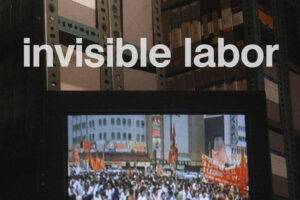WHILE many documentaries found their way into the lineup of various film festivals over the course of the year, the public’s exposure to this genre is still not enough, according to its major proponents in the industry. But two upcoming film festivals will be giving these documentaries chances to reach a wider audience.
At the QCinema International Film Festival, which will run from Nov. 8 to 17, 11 out of the 77 films lined up are documentaries.
“We have to think out of the box when it comes to exposing people to different forms of film. Filipinos have developed a strong streaming habit that deters them from exploring beyond their small screens,” said Ed Lejano, QCinema’s festival director, at a press conference in October.
This year also saw QCinema shelf its QCDox section in favor of spreading out the documentaries across multiple sections. Some of these are Spain’s Afternoons of Solitude in Screen International; Hong Kong’s Mistress Dispeller in Asian Next Wave; and Palestine’s No Other Land in QCinema Selects.
A notable documentary in the festival is the controversial Lost Sabungeros by Bryan Brazil, which was dropped at the last minute by Cinemalaya back in August “due to safety reasons.”
“At QCinema, we have documentaries that make strong statements, pieces of investigative journalism. Whatever it is, there is a context for everything that the festival espouses,” Mr. Lejano told BusinessWorld.
He added that censorship should not restrict documentaries from being shown in festivals. “We classify our own films. I think that’s the way it should be for all festivals in the Philippines,” he said.
Meanwhile, the Film Development Council of the Philippines (FDCP) is holding a documentary film festival of its own, named Dokyumentado, from Nov. 22 to Dec. 7 at its Cinematheque Centres and on the online platform JuanFlix.
“Dokyumentado features a curated selection of works from both seasoned filmmakers and emerging young talents, showcasing the transformative storytelling power of documentary filmmaking,” the FDCP said in a statement.
NECESSITY OF TRUTH-SEEKINGDocumentary filmmaker Babyruth Villarama said in an interview with BusinessWorld that, when it comes to platforms for documentaries in the Philippines, “there’s always room for more, be it at film festivals, online streaming services, or special screenings.”
“Many compelling stories still struggle to find an audience. Increasing the number of accessible and diverse platforms would… allow more voices to be heard,” she said via Messenger back in September.
Her film Home of the Brave, about trafficked and immigrant Filipinos in Los Angeles, premiered at Cinemalaya in August. Lauding how the same festival awarded Best Film to the Ati tribe’s “docufiction” Tumandok and included JL Burgos’ documentary Alipato at Muog in the competition lineup, she said: “There have been significant strides, but there’s definitely room for more.”
This sentiment is also true for Pabelle Manikan, whose short documentary Brownout Capital, about a Palawan community’s struggles with constant power outages, was selected to be part of QCinema’s Shorts Expo.
“I feel like filmmakers are too influenced by the whole pitching, financing, very showbiz process of getting their films made. I enjoyed making this short because it was close to home for me,” said Ms. Manikan in a voice call with BusinessWorld in November.
The documentary centered primarily on her relatives going about their day with unreliable electricity, along with the hassles of it.
“While more and more people are interested in documentaries, there’s still potential for better appreciation of its different types. The reportage and newsreels of TV documentaries are important, whereas docu filmmakers tend to immerse more in communities. Each has its place,” she added.
For Joanne Cesario, whose short documentary Invisible Labor is also part of Shorts Expo, the more platforms there are for truth-seeking films, the more marginalized voices get a chance to be heard.
Her work, based on Kilusang Mayo Uno’s labor archive (a repository of works documenting the Philippine labor movement), centers on Carlito Piedad, a janitor who has served as a caretaker of the archive.
“Ang ibang mga sektor wala pang ganyan — mga magsasaka, kababaihan, Moro, IPs (Other sectors don’t have that kind of initiative yet — farmers, women, Moros, indigenous peoples),” she said in a call with BusinessWorld.
“We’re grateful to festivals like QCinema, but the truth is, there are many activists, archivists, and cultural workers who haven’t found a space.” — Brontë H. Lacsamana






